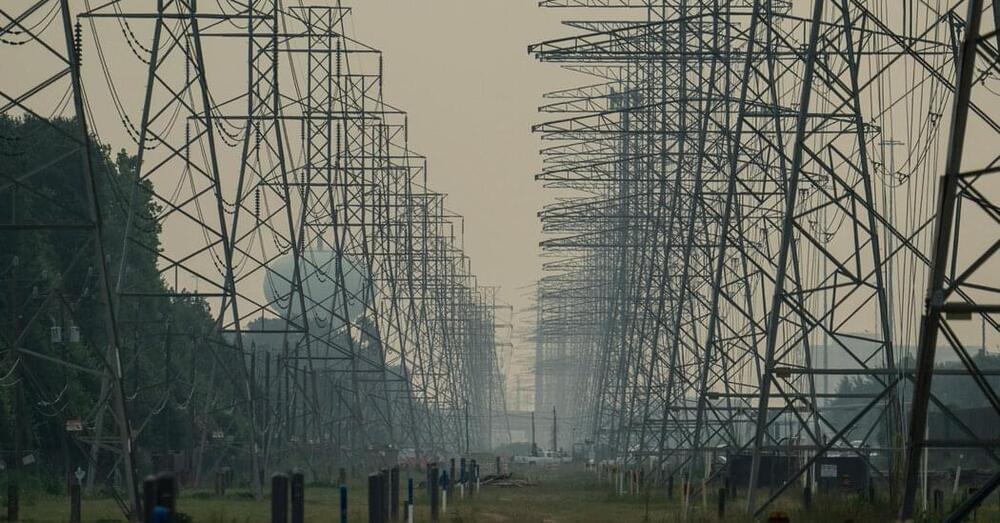Being developed at NASA, the Chatbot will allow astronauts converse with their spacecraft, also allowing mission controllers to converse with AI robots.




We asked YOU about your opinion!
Since we are all thinking about Artificial Intelligence (AI), we wanted to know what everyone has to say about it. We reached out using social media and collected some various ideas and opinions on the topic. Some people chose to include their names and others opted to remain anonymous. Thanks to the people who participated!

Welp, we warned you.
Netflix’s promotional Streamberry site, inspired by the parody version of the streaming platform in the Black Mirror Season 6 episode “Joan Is Awful,” is indeed using your image in a marketing campaign in the UK.
Launched Tuesday, Netflix’s Streamberry site (opens in a new tab) allows you to “sign up” to the platform, which looks remarkably like Netflix’s own. Signing up requires you to upload or take a photo of yourself which “may end up on a billboard” — an instant red flag if you’ve watched the Black Mirror episode.
This is a really cool story that shows how you can use AI. People don’t even know many AI tools that exist, like Adobe Podcast, or that you can remove the background of a video without chroma key (green screen)
Today, I’ll show you how I selected and used three AI tools to help improve a short informational video for my YouTube channel. One tool rescued the entire little project, and the others punched up the end result. For this project, we’ll be using Adobe’s Photoshop Beta, Adobe Podcast, and the latest version of Apple’s Final Cut Pro for Mac.
Generative AI isn’t just for showy and exciting projects. Here’s how I used AI tools to transform an instructional video into something much more compelling.
I just posted a story and commented that people don’t even know how many AI tools exist. There are many. I can decorate my house without an interior designer, and much more. Here are 5 AI editing tools for video.
Help me achieve my goal by joining my channel!||||||||||||||| 63% ||||… 31.5K/50K Joined.
➡️ Hit the [Subscribe] button or click here to sub: https://vod.strms.net/s/UCqdsVtEvUIU-0ebfhSFWOGw.
* ⭐ Newest Subscriber: DameJungle⭐*
TimeBolt: https://geni.us/TimeBolt — 20% Discount Code: Rafael.
Keyper: https://fxfactory.pxf.io/Keyper.
Captionator: https://apps.apple.com/ca/app/captionator-for-final-cut/id1627843786?mt=12
Caption Generator for Final Cut: https://apps.apple.com/ca/app/caption-generator-for-finalcut/id1666645487?mt=12
Final Cut Pro 90 Day Free Trial: https://www.apple.com/ca/final-cut-pro/trial/
Adobe Premiere: http://bit.ly/PremiereRafael.
Enhanced Editing: Final Cut Pro (Waitlist Signup!) https://links.rafaelludwig.com/efficient-editing.
0:00 Intro.
0:24 TimeBolt.
3:51 Keyper.
5:12 Captionator.
6:48 Caption Generator For Final Cut.
8:20 Remix.
10:40 Voice Isolation.
11:59 Adobe Podcast.
• ••••••••••// Support the Channel \••••••••••••••••••••••••••••••••••••••••

Mars Perseverance Rover struggled to collect samples from a crumbly, potentially conglomerate rock at the Onahu outcrop, before exploring another location, Stone Man Pass. Meanwhile, the rover continues to analyze nearby boulders and progress towards Jezero’s inner rim, home to the anticipated carbonate-rich “margin unit,” in pursuit of insights into Mars’ geological history.
Recently on Mars, Perseverance wrestled with sampling a crumbly rock and continued the mission’s boulder-bonanza!
Perseverance spent 3 weeks exploring the Onahu outcrop, after having previously performed an abrasion named Ouzel Falls. From this abrasion, scientists saw that the rock is most likely a conglomerate worth sampling, but was also likely to be crumbly.

In a new paper published today in Nature, researchers at the Francis Crick Institute have outlined the structure and function of a protein complex that is required to repair damaged DNA and protect against cancer.
Every time a cell replicates, mistakes can happen in the form of mutations, but specialized proteins exist to repair the damaged DNA.
People with mutations in a DNA repair protein called BRCA2 are predisposed to breast, ovarian and prostate cancers, which often develop at a young age. In the clinic, these cancers are treated with a drug that inhibits PARP, another protein needed for DNA repair.
Shouldn’t Facebook have alerted us and not CBS News?
The fake notice went on to say that a photo uploaded to the account’s page violated Facebook’s copyright infringement policy and that the decision could be appealed within 24 hours.
Hackers are sending fake copyright infringement notices to Facebook users to steal their credentials, a new research by Avanan has found.
In a phishing attack that primarily targets organization accounts, users would receive fake copyright infringement notices threatening to terminate their pages – unless they immediately take action.
“Your account has been suspended. This is because your account, or activity on it, doesn’t follow our Community Standards,” read one of such messages shared by Avanan.
